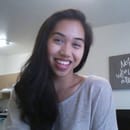As my senior year comes to a close, I’m hard pressed to get to know all of my favorite professors and to make sure they get the recognition they deserve for being as fantastic as they are. I’ve always been interested in political science, and the poly sci professors I’ve had at Cal Lutheran have continued to encourage my interests and passion for the subject. One professor is Dr. Richard Neve, who started teaching at Cal Lutheran in the fall of 2015. He started off with Modern Political Thought and American Political Thought, I didn’t have the chance to take these classes with him. Instead, I met Dr. Neve as a professor for my Contemporary Issues and Public Policy class, and I’m so glad I’m able to take more classes with him before I graduate. Dr. Neve not only cares about political science and the debates and discourse that occur within the subject, but he genuinely cares for the students. He helped us plan a Congressional Candidate Forum and continues to create opportunities for poly sci students to have experience within the various branches of political science. One of the more recent developments is the City of Thousand Oaks internship that he’s helped create for the students. Cal Lutheran is lucky to have another professor who not only cares about creating the ideal learning environment inside the classroom, but the real experience outside the classroom that students need to jump-start their success.
Dr. Neve, right top row, and his Contemporay Issues in Public Policy Spring 2018 class. Photo courtesy of author.
Her Campus at Cal Lutheran: Do you like being a professor?
Dr. Richard Neve: Oh yeah, it’s what I’ve always wanted to do. This is my first time teaching- designing an entire class and running it as a professor rather than just as a TA in grad school. As a TA, you don’t have to plan a lecture, readings, or a course syllabus. It’s a week to week support role. As a professor, you have to design everything and do all the admin and write the tests and the lectures; it’s a lot more work.
HCCLU: How long have you known you wanted to be a professor?
RN: I think it was my junior year as an undergrad; I was in a theory class and I really loved it. I was thinking of going to grad school at that point, and I had known I wanted to be a professor. The idea solidified during that time. I’m just going to stay in school for as long as I can.
HCCLU: What was it about that class that you loved?
RN: It was one of those classes where, aside from being taught by an amazing professor, he taught in a way where every single thing we learned changed how you saw the world in a very important and fundamental way. It was like he was trying to convince you of every different perspective every time we would change topics. But over the course of the year, it was like the world had opened up in all these different ways and he had given us the tools to further investigate that. I thought that was really cool- to study something and then the world looks different. You can live in it differently than you had before, just based off of what you were reading.
HCCLU: Were you a Political Science major as an undergrad?
RN: I was in Sociology in undergrad. But I was at Berkeley so all of the undergrad classes were very politically focused and I liked the theory classes. I got into Western Marxist thinking in the early 20th century. And I thought about what I wanted to continue studying, and that topic was what I was interested in and that kind of work was done in Poly Sci departments for the most part. The person that I wanted to study under, in grad school, taught in the Poly Sci department.
HCCLU: So where else did you go to school besides Berkeley?
RN: I started at Ventura College for a year and a half, then I did two years at Berkeley. Then I took two years off. Then I went to the University of Westminster in London for a one year masters and a four-year Ph.D.
HCCLU: How did you get to London?
RN: When I was talking with my professor from that theory class and I was reading some work, I pointed out that I really liked stuff from the 30’s. I asked who was doing work from that tradition now and he gave me his syllabus from a graduate class and told me to check some of those people out. I read a lot of their work and it was all way above my level. The only stuff I really understood was from this woman, her and her husband actually wrote a very famous book in the 80’s. I was reading some of her later work and I literally just turned a book over and saw that she was at the University of Westminster and her husband was at the University of Essex. So I applied to both of those schools. The advice that I got at the time from grad students at Berkeley was “you don’t go where you want for grad school, it’s not about location and it’s not about school reputation, it’s about going where people are teaching what you want to learn from the perspective that you want to learn.” If you want to do quantitative sociology, go to a school that has quantitative sociology and specializes in criminal justice or gender violence- whatever it is you want to study.
HCCLU: What was it like to live in London?
RN: Going from suburbia to a big city is always a big change. One of the things I distinctly remember was that it was one of the cities where it felt like everyone was my age. This sounds really weird, but I wasn’t around middle-aged or elderly people or kids. It was this weird environment where everyone felt like they were young and just coming out of college. I think I got lucky because I moved and I had a lot of great people in my masters; cohort that I’m still friends with now. So I fell into a lot of good friends and great professors, and I moved there not knowing anything about it. But living in a big city takes away the glamor from the big city. It’s great, it has museums and concerts and restaurants and stuff. But it’s also congested and expensive and frustrating at time.
HCCLU: Was that a difficult decision for you to make?
RN: It was an adventure; I decided I was going to do it. I didn’t want to live at home. I hadn’t seen the light of living in Ventura County and seeing how amazing it actually is. I just wanted to get out of home and London seemed like the best place to do that. I don’t speak any other languages, unfortunately, so I couldn’t go anywhere I wanted to. It was convenient in some ways.
HCCLU: What was your thesis?
RN: The name of my degree is Normative Political Theory, but my specialization is in Emergency Politics. I wrote a critique of the conceptual or philosophical framework we have used in order to understand states of emergency. People think that there’s a difference between normal and emergency times and that it’s an objective distinction. I argued that it’s actually a political distinction and it’s not the best way to approach situations. It’s actually a point for Machiavelli that you’re supposed to labor in normal times and in the quiet times, build a society that is resilient against whatever comes your way because you’re never going to know what happens.
HCCLU: Was there a specific reason you chose that specialization?
RN: I started in 2007, so it was still a popular topic within political theory and in political debates and discourses. I thought I was going to start with a critique of American politics but as I started doing some work and talking to people, it felt like there was this big philosophical issue that also needed to be dealt with. So I went that route instead of a more empirical route, which would have had me reading actual emergency statutes around the world. I didn’t want to go down that route because a lot of American political theorists were doing that and talking about the United States. I thought there was something else that needed to be said at a different level.
HCCLU: What did you do from the time you received your Ph.D. to this position at Cal Lutheran?
RN: I never planned on coming back to the United States, but two years into my doctoral work, the British government saw it fit to end a program where if you had a student visa, if you finished, you could stay for two years to work. They ended that, so as soon as I turned in my written thesis, I had four months to get a job sponsored by a UK institution or company or leave the country. Because there’s a lag between when you submit your thesis and your oral defense, I basically had no chance of getting a job that would sponsor my visa. I had to come home. I spent several months applying for teaching jobs around the world as it became clear that it was going to be very hard to find something. I had been hanging out at my friends’ coffee shop in Ventura. We’re old friends and we would chat, I’d hang out and send out applications. As time went on and it got more and more difficult, they asked if I would want to work with them because they needed someone soon who would run the cafe, roast coffee, and help with business. I fell into that and did that from the summer of 2013, I’m still doing it two days a week.
HCCLU: What was it like to start teaching?
RN: Well I had two weeks notice, Dr. Marichal and I had lunch in March of 2015 and in August I got an email asking if I could teach the two theory courses in two weeks. I said yes then I kind of panicked and the first semester was tough. It was all stuff that I had read before or I was familiar with, but it was a huge learning curve.
HCCLU: Do you like teaching at Cal Lutheran?
RN: Absolutely, it’s great. I feel like Cal Lutheran, as opposed to what I experienced in undergrad, we get to have more one on one interactions. With smaller class sizes, it’s easier to have more in depth conversations. The quality of the work is as good or better than anything I’ve ever read or experienced either as a TA in England or as an undergrad in Berkeley. It’s a really special and interesting place with a lot of very smart people concentrated in one area.
Ventura County Elections Division visiting Dr. Neve’s Political Science class to train students how to register voters. Photo courtesy of Ventura County Clerk-Recorder
HCCLU: Are you hoping to stay at Cal Lutheran or are you hoping to travel?
RN: The reality of the academic job market is that you have to be willing to go anywhere. If you’re not, it makes things a little bit more difficult. I haven’t been applying all over the place, but academics are nomadic by nature.
HCCLU: What’s something important for you, as a professor, in regards to how you want your class to be?
RN: I think it’s important for the university as an institution to be outwardly facing towards the community, towards the international community, and towards the issues outside of academia. I’m trying to make my classes as outwardly focused as possible and help the university develop relationships with other institutions and organizations in the local community. I’m still early in my career; it’s been in the last 18 months that I realized that’s what I’m interested in doing. I don’t want us to hide away in an ivory tower, but instead, we’re doing things that can benefit everyone else.
HCCLU: And part of that effort is spearheading the City of Thousand Oaks internships?
RN: Yes, it’s the first phase in a larger project where every Poly Sci student who comes to this university will have help and guidance and a clear path to whether it be city government, county government, state government, any of the nonprofits. Trying to build a model for doing that so other departments can pick it up and adapt.
HCCLU: What’s one thing you would hope your students can take away from you as a professor or from the classes that you teach?
RN: My biggest hope is what students take away from the classes is a sort of skill set and sense of confidence that no matter what problems they come across or need to deal with after leaving school or even while they’re in school, in civic life, that they feel like they can approach them and get a really solid understanding of what’s going on. To have that sort of research and analysis skill set and can say that they can figure it out, no matter what it is- we can figure it out and we can figure out what to do about this.



